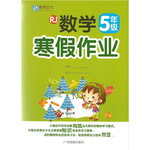
Look at the picture . 1 ЫќЪЧвЛМфНЬЪвЕФееЦЌ. What can you see in the classroom?
2.I can see a black desk in the front of the classroom. Some books are on the desk. What other things can you see on the teacherЁЏs desk? I can see two white 3 . There is some chalk in them. Where are the brooms? They are behind the door.
1 ККвыгЂЃК .
2 гЂвыККЃК .
3ИљОнОфвтЬюШыЪЪЕБЕФЕЅДЪ_____________.
4 Where are the booksЃП
5 Are the brooms behind the deskЃП
 РшУїЮФЛЏКЎМйзївЕЯЕСаД№АИ
РшУїЮФЛЏКЎМйзївЕЯЕСаД№АИ
| ФъМЖ | ИпжаПЮГЬ | ФъМЖ | ГѕжаПЮГЬ |
| ИпвЛ | ИпвЛУтЗбПЮГЬЭЦМіЃЁ | ГѕвЛ | ГѕвЛУтЗбПЮГЬЭЦМіЃЁ |
| ИпЖў | ИпЖўУтЗбПЮГЬЭЦМіЃЁ | ГѕЖў | ГѕЖўУтЗбПЮГЬЭЦМіЃЁ |
| ИпШ§ | ИпШ§УтЗбПЮГЬЭЦМіЃЁ | ГѕШ§ | ГѕШ§УтЗбПЮГЬЭЦМіЃЁ |
ПЦФПЃКГѕжагЂгя РДдДЃКжиЧьЪаПЊЯижабЇ2010НьГѕШ§ЯТбЇЦкЁАСНПМКЯвЛЁБФЃФтПМЪдгЂгяЪдЬт ЬтаЭЃК054
| |||||||||||||||||||||||||||||||||||||||||||||||||||||||||||||||||||||||||||||||||||||||||||||||||||||||||||||||||||||||||||||||||||||||||||||||
ВщПДД№АИКЭНтЮі>>
ПЦФПЃКГѕжагЂгя РДдДЃК ЬтаЭЃК050
| |||||||||||||||||||||||||||||||||
ВщПДД№АИКЭНтЮі>>
ПЦФПЃКГѕжагЂгя РДдДЃК2013НьЖШСЌдЦИлЪаАЫФъМЖЕквЛДЮдТПМгЂгяОэ ЬтаЭЃКЭъаЭЬюПе
Last year Tome left school. He came to Taipei to _1_ a job(ЙЄзї). He went from one company(ЙЋЫО) to another but _2_ wanted him. Now he had little money. He had to go back to his small town. So he came to the station. He felt _3_ and tired. It was very late at night and _4_ was full of people. They were waiting _5_ tickets of the last train. He bought the last ticket, and he was very happy.
At that time, a woman with a crying baby walked to him. She asked him to sell her the ticket. He gave her the ticket. He thought they needed it _6_ he did. After _7_ left, he sat on the bench(ГЄЕЪ) and didnЁЏt know _8_ to go. Just then, an old man came and said, ЁАYoung man, I _9_ what you did to the woman. I have a big company. I need a good young man like _10_. Would you like to work for me?ЁБ
( ) 1. A. find B. see C. look for D. buy
( ) 2. A. everyone B. no one C. nothing D. somethi
( ) 3. A. happy B. interesting C. sad D. glad
( ) 4. A. the city B. the company C. the farm D. the station
( ) 5. A. to buy B. to sell C. to give D. to pass
( ) 6. A. less than B. more than C. smaller them D. worse th
( ) 7. A. Tom B. the bus C. the train D. the old
( ) 8. A. what B. which C. why D. where
( ) 9. A. have seen B. donЁЏt know C. donЁЏt like D. have done ( ) 10. A. the woman B. you C. the baby D. her
ВщПДД№АИКЭНтЮі>>
ПЦФПЃКГѕжагЂгя РДдДЃКЭЌВНЬт ЬтаЭЃКдФЖСРэНт
1. Why are text messages popular?
A. Because they are expensive.
B. Because they are cheap.
C. Because they are hard to write.
D. Because they are not important.
2. The first paragraph tells us that we can make the text messages shorter in _______ways.
A. one
B. two
C. three
D. four
3. What does this text message " Do U wnt 2 cks?" mean? It means_______.
A. Do you want to come?
B. Do you wear two caps?
C. Do you want two cakes?
D. Do you go home early?
4. Why do people use emoticons?
A. Because they can show how the users feel.
B. Because the symbols are beautiful.
C. Because the text messages are short.
D. Because the users can't make the words shorter.
5. If you want to say someone is happy, you could use the symbol " ___ " in the text message.
A. -)
B. -(
C. -v
D. |ЁЄ|
ВщПДД№АИКЭНтЮі>>
ПЦФПЃКГѕжагЂгя РДдДЃКЫФДЈЪЁжаПМецЬт ЬтаЭЃКВЙШЋЖдЛАЃЌЧщОАЮЪД№
| ИљОнЖдЛАФкШнЃЌДгЖдЛАЧАЕФбЁЯюжабЁГіФмЬюШыПеАзДІЕФзюМббЁЯюЃЌВЂдкД№ЬтПЈЩЯНЋИУЯюЭПКкЁЃбЁЯюжагавЛЯюЮЊЖргрбЁЯюЁЃ | |
| |
| A: Could you tell me something about your hometown? People say it's quite near the sea. B: Oh, no. My hometown is about 100 miles from the sea. A: Oh, I see. 1 B: Not really. It's got a population of about 20,000. A: And is it a very old town? B: Yes, it is. 2 A: Really? It must be quite an interesting place then. B: Yes, it is. We get a lot of tourists. 3 A: Well, what do the tourists do there? B: Oh, the can walk through the town and look at the old buildings. There are some great restaurants in the town. A: 4 B: No, there isn't any. But there are a few lovely mountains near the town. They are very good for skiing in winter. A: 5 |
ВщПДД№АИКЭНтЮі>>
АйЖШжТаХ - СЗЯАВсСаБэ - ЪдЬтСаБэ
КўББЪЁЛЅСЊЭјЮЅЗЈКЭВЛСМаХЯЂОйБЈЦНЬЈ | ЭјЩЯгаКІаХЯЂОйБЈзЈЧј | ЕчаХеЉЦОйБЈзЈЧј | ЩцРњЪЗащЮожївхгаКІаХЯЂОйБЈзЈЧј | ЩцЦѓЧжШЈОйБЈзЈЧј
ЮЅЗЈКЭВЛСМаХЯЂОйБЈЕчЛАЃК027-86699610 ОйБЈгЪЯфЃК58377363@163.com